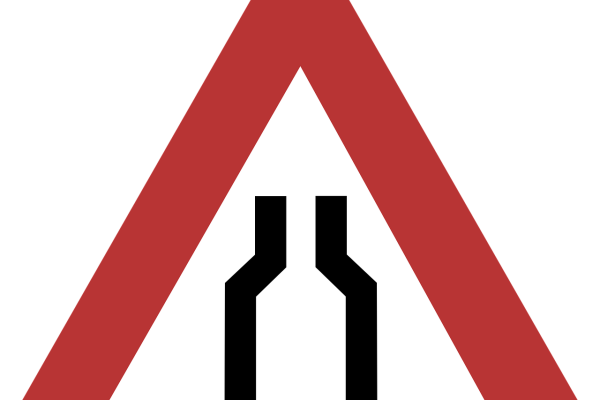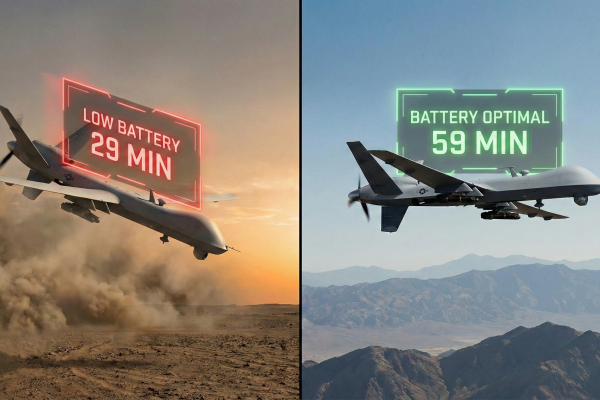April 4th, 2022 | 12:21 CEST
BASF, Defense Metals, Rheinmetall - Shares that depend on rare earths
The Ukraine crisis has shown us how dependent we are on Russian energy imports. The German government now wants to step on the gas pedal even more for renewable energies. The problem is that new technologies such as electric vehicles or wind turbines almost always require rare earths. But rare earths are not only needed there; the defense industry needs these raw materials to optimize steel or as magnets in a wide variety of weapons technologies. But rare earths are also present in the household, in smartphones, notebooks and many other technological devices. Today we take a look at three companies around rare earths.
time to read: 5 minutes
|
Author:
Armin Schulz
ISIN:
BASF SE NA O.N. | DE000BASF111 , DEFENSE METALS CORP. | CA2446331035 , RHEINMETALL AG | DE0007030009
Table of contents:
Author
Armin Schulz
Born in Mönchengladbach, he studied business administration in the Netherlands. In the course of his studies he came into contact with the stock exchange for the first time. He has more than 25 years of experience in stock market business.
Tag cloud
Shares cloud
BASF - What to do with Wintershall Dea?
Back in 2011, BASF signed a long-term rare earths supply agreement with Australia's Lynas to secure long-term access to the raw materials, which at the time, were mined mainly in China. However, the Ludwigshafen-based Company has also joined forces with other companies in the more recent past to combat mining waste. If it is not possible to recycle the raw materials used in the electronics industry, there is a threat of a supply bottleneck in the long term - including for rare earths. But for the moment, the focus is on the Ukraine conflict. Brudermüller, the Group's CEO, recently warned of a shortfall in oil and gas supplies from Russia.
Without the energy, there would be considerable damage to the German economy. There is no question about that, but is there another reason for the warning? The Group still owns the subsidiary Wintershall Dea, which was supposed to be floated on the stock exchange. Everything is different now. There are reports of a toxic subsidiary in part because Wintershall Dea works closely with Gazprom in Siberia. About half of the oil and gas production takes place in Russia. Business was excellent for the subsidiary last year, but the question is what will happen next. The first thing to be written off was the investment in Nord Stream 2.
Otherwise, things are going well for the parent company in operational terms, although the high energy costs are having an impact. For this reason, earnings for the current year are only expected to be on a par with the previous year. For dividend hunters, the share is currently a hot tip, as it pays a dividend of over 6%. The value is currently trading at EUR 52.13. Should you buy despite the warnings and a gas contingency plan? One will certainly not go wrong with an investment in the long term, but setbacks must be expected.
Defense Metals - Continuously good drilling results
Rare earths are common worldwide, but often only in small quantities, so economic mining often doesn't make sense. Although China has slipped from 90% to about 60% in the mining of rare earths, it still has a monopoly position in the processing of rare earths with 90%. In order to reduce this dependency, economic alternatives are needed. One of these alternatives is the Canadian company Defense Metals, which is developing the Rare Earth Project in Wicheeda. The Company was able to present a PEA study last November that shows the potential of the 2,008-hectare project. According to the analysis, the mine has an expected life of 19 years and is expected to produce about 25,000 tons of rare earth oxide per year.
The results of the drilling program were released gradually in March. There were 5 updates in total, and each time the diamond drilling produced high-grade results. The March 2 announcement kicked things off with a rare earth oxide grade of 3.17% over 196m. That was followed a day later by 6.01% over 23.4m and 3.19% over 138m. Then peak values of up to 4.21% over 45m, 6.14% over 20m and 4.77% over 60m followed by March 15. Further results are pending, but already new high-grade zones have been identified. These have the potential to expand the resource estimate and thus extend the mine life. A detailed overview of the Company can be found at researchanalyst.com.
Groundbreaking for a Hydromet pilot plant is expected to take place before the end of the first half of the year. The aim is to secure customers and the first purchase contracts. Another milestone would then have been reached. There should be enough customers for the rare earths in North America. Those who would like to get a more detailed picture of the commodities sector can attend the free IIF Industry Talk on Wednesday, April 6, at 7 pm, where the president and director of Defense Metals, Dr. Luisa Moreno, will be presenting. The share, currently trading at CAD 0.29, has formed an uptrend since the beginning of the year. Compared to the peer group, the stock still has significant catch-up potential.
Rheinmetall - First orders from the German armed forces
How elementary rare earths are for the defense industry could already be seen in 2019, when the US military financed the construction of rare earth production facilities. Already at that time, there was a trade dispute between the US and China, and America wanted more independence in the strategically important raw material. With the Ukraine conflict, it seems that the cold war is coming back, and many countries are rearming. Germany is providing the German armed forces with EUR 100 billion in special funds and will increase future arms spending to over 2% of GDP. One of the primary beneficiaries will be Rheinmetall.
Even before the Ukraine conflict, business was booming for the Düsseldorf company. On March 17, a new record result for 2021 was announced. Sales amounted to around EUR 5.6 billion, an increase of 4.7%, and the operating result even rose by 33% to EUR 594 million. The margin also increased by 2.2% to 10.5%, and the order books were full to bursting at EUR 24.5 billion. The Group was recently able to announce two new German defense contracts. Exact figures were not published, but the two orders flushed low double-digit million amounts into the cash register. On March 30, the Company also landed a major order for an ammunition package worth several hundred million euros.
Operationally, things are going so well that 3,000 new jobs are to be created to process the orders. The Group does not seem to be short of rare earths at the moment, as CEO Papperger recently emphasized in an interview that it could supply equipment worth EUR 42 billion without any problems. A detailed analysis of the Company can also be found on researchanalyst.com. Since the outbreak of the Ukraine conflict, the share has been flying high and is currently trading at EUR 192.85. The new orders are a tailwind. These new orders are giving the stock a tailwind.
Conclusion
Rare earths are found in many technological products, even if consumers are often unaware. The dependence on China for rare earths is as striking as Germany's dependence on Russian energy imports. BASF took care of the supply of rare earths years ago. Currently, however, the focus is on its subsidiary Wintershall Dea. Defense Metals is on its way to becoming one of the few rare earth producers in North America. Anyone who wants to invest in rare earths is well advised to do so. Rheinmetall has taken precautions and is profiting strongly from the Ukraine crisis and the resulting rearmament.
Conflict of interest
Pursuant to §85 of the German Securities Trading Act (WpHG), we point out that Apaton Finance GmbH as well as partners, authors or employees of Apaton Finance GmbH (hereinafter referred to as "Relevant Persons") may hold shares or other financial instruments of the aforementioned companies in the future or may bet on rising or falling prices and thus a conflict of interest may arise in the future. The Relevant Persons reserve the right to buy or sell shares or other financial instruments of the Company at any time (hereinafter each a "Transaction"). Transactions may, under certain circumstances, influence the respective price of the shares or other financial instruments of the Company.
In addition, Apaton Finance GmbH is active in the context of the preparation and publication of the reporting in paid contractual relationships.
For this reason, there is a concrete conflict of interest.
The above information on existing conflicts of interest applies to all types and forms of publication used by Apaton Finance GmbH for publications on companies.
Risk notice
Apaton Finance GmbH offers editors, agencies and companies the opportunity to publish commentaries, interviews, summaries, news and the like on news.financial. These contents are exclusively for the information of the readers and do not represent any call to action or recommendations, neither explicitly nor implicitly they are to be understood as an assurance of possible price developments. The contents do not replace individual expert investment advice and do not constitute an offer to sell the discussed share(s) or other financial instruments, nor an invitation to buy or sell such.
The content is expressly not a financial analysis, but a journalistic or advertising text. Readers or users who make investment decisions or carry out transactions on the basis of the information provided here do so entirely at their own risk. No contractual relationship is established between Apaton Finance GmbH and its readers or the users of its offers, as our information only refers to the company and not to the investment decision of the reader or user.
The acquisition of financial instruments involves high risks, which can lead to the total loss of the invested capital. The information published by Apaton Finance GmbH and its authors is based on careful research. Nevertheless, no liability is assumed for financial losses or a content-related guarantee for the topicality, correctness, appropriateness and completeness of the content provided here. Please also note our Terms of use.




